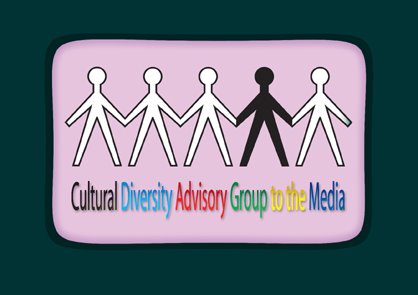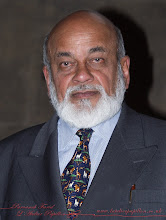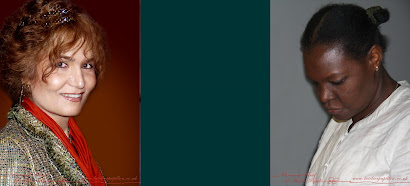Notes of the ‘Diversity in the Media’ Book Launch
3rd July 2008 at the Southampton Solent University Conference Centre
Sir James Matthew Building, 157-187 Above Bar Street, Southampton
Welcome & Opening Remarks
The launch was attended by CDAGM members, local media and invited guests and was opened with welcome remarks by Parvaneh Farid, CDAGM Chair.
Anver Jeevanjee, President of CDAGM, also welcomed everyone present and thanked the committee. He mentioned that the CDAGM was a unique, diverse and wholly independent, voluntary, self help group that has ‘shunned’ public funding in order to maintain its autonomy. He explained that the book was in line with what a variety of well-established visible minority role models in the British media are saying about the shortcomings in the output and portrayal on the screen, print media and radio.
Speakers
This was followed by speeches and presentations by the main speakers, Pauline Brandt, former BBC South newsreader, Sangeeta Bhabra, ITV Meridian, Mike Hapgood, Head of BBC South and Ian Murray, Editor, Southern Daily Echo.
These are summarised in these notes. However, you can listen to and read the speeches on our blogspot at http://cdagm.blogspot.com/
In her speech, Pauline Brandt emphasised two-way communication in engaging with diverse audience. She clarified that the gains for the Media to ‘mirror the community’ has been hard won in America but the task is far from completed and must not be taken for granted. She thanked Anver for documenting the history of the Cultural Diversity Advisory Group to the Media so that its history does not become hearsay.
Mike Hapgood gave some of his thoughts on the media’s portrayal of the diverse community we live in, and why solving some of our problems has proved so difficult. He mentioned that he was heartened to report on increased numbers of women journalists and correspondents (e.g. Anna Lindsay, Senior Correspondent at BBC South). He believes that the difference between what the ‘power-brokering elite’ think and what audiences think is important. He finds it extremely difficult to change the fact that there has not been much change behind the camera despite diverse portrayal on screen. Equal opportunity policies to deal with this are not always effective mainly because of the ‘recognise yourself’ and ‘replicate’ factor. Issues of equality and access are more far-reaching and complex.
Ian Murray gave the background to his relationship with the CDAGM and mentioned that he was happy to support this event. He admitted that while it has been difficult to represent correctly and properly ethnic minorities, newspapers pander to the majority in order to sell papers. Although the initiatives have not worked, there is a need to look into best practice in order to move forward. He will not be giving up and his ambition is to bring more colleagues from the print media to attend CDAGM. He agrees that the CDAGM is unique and is privileged to be part of it.
Bryan Gibson, Waterside Press, spoke briefly to give his best wishes on the launch and book sales. He mentioned that it was unusual for his company to publish this book as they normally publish books on the criminal justice field. Publishing the book was a lesson in persistence in order to make headway. There is a flow in the book that illustrates the gains Anver made despite periods when he was deflected.
Sangeeta Bhabra, spoke about her involvement with CDAGM and what it has meant to her as a journalist. She has found the group an invaluable tool which has helped her be more valuable to her work organisation. Through the group she has set up contacts within communities; diverse people from different backgrounds, walks of life and interests. She has met people in the safe and informal environment at CDAGM meetings who are passionate about diversity and been able especially to have debate about subjects such as race.
This has opened up stories in communities, unrelated to ethnicity and educated her organisation on what is happening in the world and the relevance to their viewers. It has given them a fresh look and different ways of looking at subject matter.
ITV publish a policy document that examines how to make programmes better (as well as how to raise revenue for the organisation) ITV regional news now has a formal structure to make sure that diversity is part of what they do on a daily basis. Sangeeta recognises that there is still a lot of work to be done although the South is slightly ahead. She hopes that through the relationship with CDAGM and the group continuing to challenge what ITV put on screen they will continue to improve.
There then followed a showing of extracts of the book launch in London.
Question and Answers
A coffee break was followed by questions and answers to a panel of CDAGM members and the local media. The questions and discussions focussed on the portrayal of BMEs in the media and the need for fair and positive stories as well as representation of culturally diverse audiences.
‘What The Future Holds For Us’
Don John, CDAGM member, mentioned that the quality of the work in which we have been involved is measured by progress. The Media has come to diversity by commercial imperative. We have made progress as some people in the media are working to make a change. The record in the South is better. He suggested Black and Minority Ethnic people need to organise ourselves in such a way as not to be ignored. They should use opportunities, contacts and the ‘bother factor’ to get their voices heard. They need to invest in young people too and recruit them to work on the bother factor.
Closing Remarks & Book Signing
Parvaneh closed the event thanking the audience, active CDAGM members as well as Adam Jeevanjee, photo editor for the book.
Those present continued to mingle while some had their books signed.
Anver proposed a vote of thanks to Parvaneh and Dennis proposed a vote of thanks to Anver.


